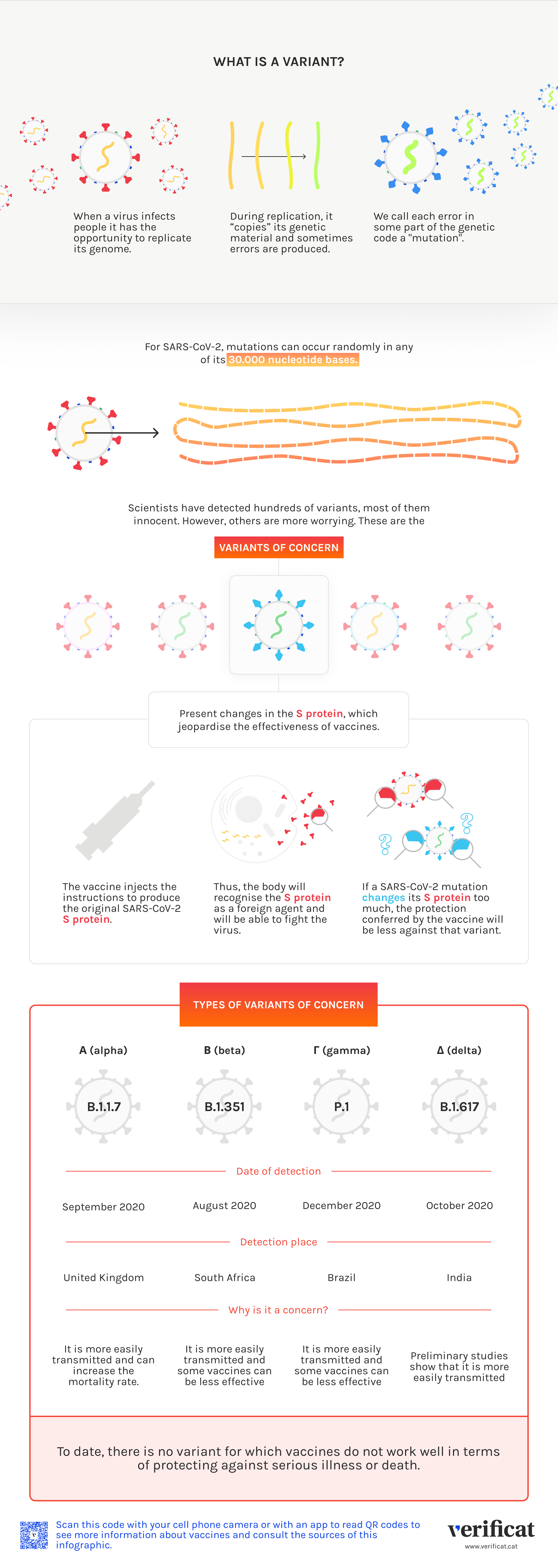SARS-CoV-2 variants have not appeared in places where the movement of people has been more restricted
The variant in a specific country does not carry such a name because it has been born or appeared there (or not necessarily), but because it has been detected there

The portal Latin American Information Agency (ALAINET) has published a paper criticising, among other things, the world vaccination campaign and the effectiveness of quarantines to avoid disseminating the virus, using the arguments of certain experts who question it, such as Jemma Moran, head of communications for the Hart Group —an association of British doctors, economists, academics and scientists— who claims that “variants seem to come of places where general quarantines were done, as England”. This is FALSE: the origin of a variant, is often not 100% known. The variant of a specific country does not carry such a name because it has been born or appeared there (or not necessarily), but because it has been detected there. Furthermore, some of the most worrying variants for the scientific community have been detected in countries with shallow movement restrictions such as Brazil or India.
The variants —which are being presented as more transmissible and virulent— seem to come from places where general quarantines were carried out, such as England, “and not from Sweden or India"
At one point in the text, the author extracts statements by a person he identifies as Jemma Moran, who is head of communications for the Hart Group —an association of British doctors, economists, academics and scientists— (a datum who has herself confirmed to Verificat, who has also acknowledged authorship of the text to which the author refers). The author questions the effectiveness of quarantines as a way to avoid the generation of variants, and she asks herself ironically if it is a “coincidence” that in places with “very restrictive measures during the pandemic”, such as in Kent, such a variant dominated “after a period of regional and national blockades in the UK”.
This is a false statement, since it relates the emergence of variants with a geographical context, when variants’ detection depends, above all, of the capacity of such a country in sequencing coronavirus genome: “In fact, both Brazil (where the P.1 variant was identified) and India (where B1617.2 was identified) are places where there has been very high viral transmission and few restrictive measures," Sarukhan recalls.
In other words: that the variant of a specific country does not carry such a name because it was born or emerged there (or not necessarily), but because it was detected there. To avoid such a type of confusion, the WHO has proposed to change the name of the variants, and assign them a letter of the Greek alphabet as name.
Spanish flu as an example
An example of how names based in geography generate a stigma is the misnamed Spanish flu, which is known as such because it was in Spain it was first detected, not where it emerged (in fact, it is still not known where it appeared).
